Afghanistan War, Civil Liberties, Extraordinary Rendition, Guantanamo, Habeas Corpus, Human Rights, Impeachment, Military Tribunal, Prosecution of the Bush Administration, Targeting Muslims, Torture, Truth to Power
Podcast: Play in new window | Download
Host Updates:
Hear more of the Jim Lehrer Newshour interview with Michael Ratner and Jeffrey Smith
—-

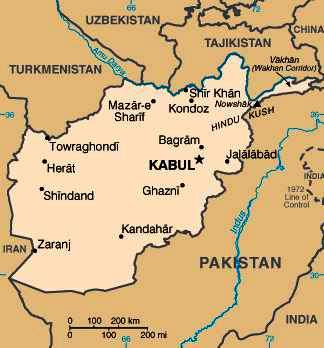
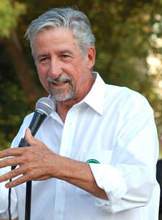
US To Escalate War in Afghanistan
Nearly 15 thousand US troops have been recently committed to Afghanistan, and progressive think tanks are pushing the Obama Administration to send an additional 17 thousand which would bring the total to 70 thousand troops. Expansions are being built onto the Bagram prison, as mass incarceration is expected. Progressive Think Tank Tells Obama to Escalate
Tom Hayden:
- Global Phoenix Program – in testimony last week, 10 – 12 years overall to win the Afghanistan War. Two years of hard fighting, a couple extra billion dollars a month. I think they plan to send the troops into Southern Afghanistan and to take on the Taliban or who ever the local resistance forces are.
- I think people need to buckle their seat belts for a war. We’re going to have a war in Afghanistan that’s soft on torture. Where are the human rights groups, we’re sending US troops into a dirty war that incarcerates without evidence, tens of thousands of people.
- Center for American Progress – I’m disappointed in them, they’re usually good liberal democrats. Now they’ve come out for a military surge in Afghanistan.
- Obama has narrowed it down to one goal. Can we prevent Al-Quaeda from getting a base area from which they can attack Europe or the United States. The more we go into Pakistan with the predators and drones, the more Pakistan turns against us. It becomes a recruiting tool for more militants.
- The other way to go would be to address the grievances of the Muslim world that give al-queda some support base.
- 1. The US unconditional support for Israel
- 2. 150 thousand troops still in Iraq
- 3. US troops in countries where Muslims control their own oil.
- It’s all laid out in a book by Michael Scheuer -Imperial Hubris: Why the West is Losing the War on Terror
- I work very closely with Robert Greenwald at Brave New Foundation. Getting Afghanistan Right. There’s a huge sectarian problem in the anti-war movement. Nonetheless there’s always a peace and justice community in every city I go to.
- One wonders what it will take for someone in the House or Senate to stand up and say I want to lead the anti-war movement.
Guest – Political and social activist Tom Hayden joins us today to fill in the detail and time line in this escalation of war. Tom is also the author of Ending The War In Iraq.
—–
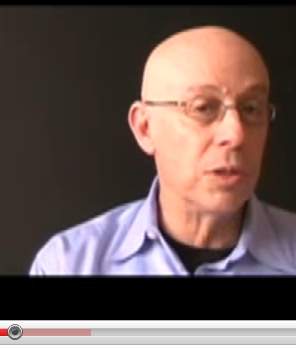


US War in Afghanistan and Pakistan – Follow Up
As tensions rise between Pakistan and the United States, President Obama recently mentioned that stability in Afghanistan depends on what will happen in Pakistan. The United States and Pakistan have been allies in their interest to purge Islamist extremism, however the two countries are now embroiled in miscommunication, drone wars and mistrust that is centered around a 10 billion dollar military aid fund. Analysts say the Obama administration is asking a lot from a fragile Pakistani government that has been in power for now only a year.
Michael Schwartz:
- President Obama’s speech – on Pakistan, tells the whole story. You have to unpack it.
- Not a lot of people have read the speech, Obama starts by saying a campaign against extremism will not succeed by bullets and bombs alone then he launches into the peaceful side of American policy.
- The US is planning to make Pakistan another outpost of globalization creating an opportunity for multinational corporations to invest into a local economy and basically take it over.
- What they’re saying is they’re trying to execute a policy to bring Pakistan into full economic domination of American capitalism. – a globalized version of American capitalism. The military aspect of this is only a part to secure the farthest reaches of the middle east, the part of instability.
- Obama’s speech is filled with being “adminstratively involved with Afghanistan and Pakistan.
- The delivery is profound American presence. American enterprises, adminstrators, experts, trainers, a kind of colonial presence, then on the other side of this, an integration into the global system.
- Private multinational enterprises will build schools, infrastructure.
- This same neo-liberal process has ocurred in Africa, South America and what we know about this process is that there is an extraction of large profits by these multinational corporations. The Taliban would set up a social organization that is incompatible with the globalized agenda, so you can see this as a counter-insurgency maneuver.
- The military part of this is that they’re not going to be able to do this in a peaceful way, they’re going to have to conquer the area.
- In a period of two years with more than 90 drone attacks have killed 5000 innocent Pakistanis. They want to kill civilians
- The sense that people are waiting to see whether Obama and Congress move to escalate the war is a big part of the lack of energy in the anti-war movement.
- These are colonial wars, because the United States seeks to have a real administrative hold over these countries.
- The United States can’t withdraw from Afghanistan because it borders on the three Caspian Sea oil companies. Those oil companies are gravitating toward China and Russia in the grand scheme of things.
- Regarding the Poppy agriculture in Afghanistan, the Taliban had gotten rid of the poppies, since the US had invaded Afghanistan, the poppy agriculture has come backWe talk today with Michael Schwartz about the current relations amid Pakistan, the United States and the war in Afghanistan.
- $1.5 billion in direct support to the Pakistani people every year over the next five years – resources that will build schools, roads, and hospitals, and strengthen Pakistan’s democracy. I’m also calling on Congress to pass a bipartisan bill co-sponsored by Maria Cantwell, Chris Van Hollen and Peter Hoekstra that creates opportunity zones in the border region to develop the economy and bring hope to places plagued by violence. And we will ask our friends and allies to do their part – including at the donors conference in Tokyo next month.
Guest – Michael Schwartz is a professor of Sociology and Faculty Director of the Undergraduate College of Global Studies at Stony Brook University, has written extensively on popular protest and insurgency as well as on American business and government dynamics. His books include the recently published War Without End.
———

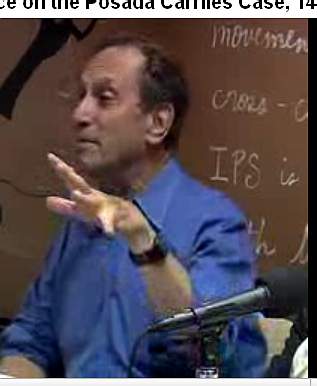
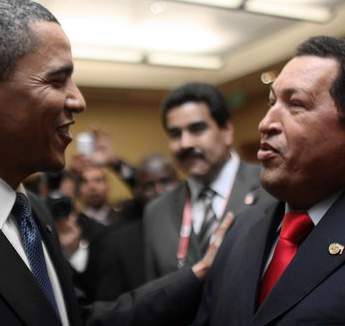
Cuba, South America and the Summit of the Americas
Earlier this year we spoke with film maker and Cuban scholar Saul Landau about the Cuban 50th anniversary and its significance. Now Saul describes the changes we can expect with regard to Cuban / US relations from the Obama Administration. The discussion also covers some detail of the recent talks at the Summit of the Americas in Trinidad.
Saul Landau:
- Obama has allowed Cuban Americans to travel freely to Cuba and allowing more loose travel regulations as well.
- What can Cuba really do except to promise to stop hitting the US in the fist with its face.
- What did Cuba do to the United States to merit 50 years of punishment?
- I don’t think Cubans are prepared to have 100 thousand Spring Breakers descend upon Havana.
- Nor are they prepared for American investors with big wads of cash, trying to buy up everybody and everything that they see.
- I think Obama is one of the cleverist, winsome, brightest people I can ever imagine, he’s a hard man to resist. But you have to get behind his optimistic rhetoric, his humility, his smile and his handshake and remember that prize fighters also shake hands before the first round.
- Cuba will have a lower profile in the future, we’ve seen the most publicity we’re going to see for quite a while now.
- I think things are little better, they’re a little quieter and less hostile. I think Cuba has its own problems that it really has to deal with
Guest – Saul Landau is an internationally known author, commentator, and film maker on foreign and domestic policy issues. Landau’s most widely praised achievements are the over forty films he has produced on social, political and historical issues, and worldwide human rights, for which he won the Letelier-Moffitt Human Rights Award, the George Polk Award for Investigative Reporting, and the First Amendment Award, as well as an Emmy for “Paul Jacobs and the Nuclear Gang.” In 2008, the Chilean government presented him withthe Bernardo O’Higgins Award for his human rights work. Landau has written fourteen books including a book of poems, “My Dad Was Not Hamlet.” He received an Edgar Allen Poe Award for Assassination on Embassy Row, a report on the 1976 murders of Chilean Ambassador Orlando Letelier and his colleague, Ronni Moffitt.
He is Professor Emeritus at California State University, Pomona. He is a senior Fellow at and Vice Chair of the Institute for Policy Studies.
————————————————————-
.
Afghanistan War, Civil Liberties, Criminalizing Dissent, Human Rights, Surveillance, Truth to Power
Podcast: Play in new window | Download
Hosts Updates:
——————-
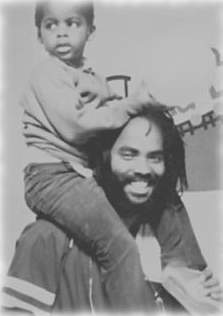
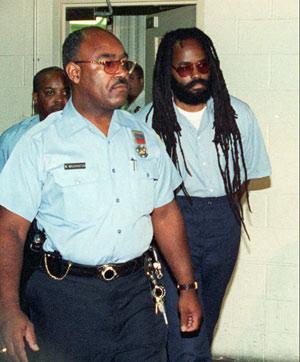

Mumia Exception: Supreme Court Denies Appeal For Mumia Abu-Jamal
In early April the Supreme Court denied a petition for writ of certiorari in the longstanding case of Mumia Abu Jamal. The appeal to the high Court included an examination of the so-called culture of discrimination operative among Philadelphia prosecutors. It cited 11 separate rulings in which federal and Pennsylvania state courts specifically faulted Philadelphia prosecutors for engaging in intentional discrimination during jury selection. Mumia Exception
Citing dozens of court rulings nationwide, it noted a U.S. Supreme Court ruling where one justice used a statistical study documenting Philadelphia prosecutors purging potential Black jurors at twice the rate of whites during death penalty trials between 1981 and 1997.
Linn Washington:
- Courts, be they city courts in Philadelphia, apellate courts in Pennsylvania or federal courts at the trial level and appeals level,
- they will either ignore or alter their established rulings, their precedent . . .when it comes to the Mumia case.
- In Mumia’s case, we have a situation where police actually, withheld evidence, they altered evidence, we now know this clearly, but the courts have helped suppress that
- Prison authorities have barred photographing or recording for broadcast purposes of inmates in institutions, just as a way to get at Mumia. You can go in with a notebook and pen.
- Batson Case: In the first 3 years of prosecution in Mumia’s trial, there was deliberate purging of black people from the jurors, for racially discriminatory purposes.
- A video tape had surfaced of a training session, a formal training session in the office, where a senior prosecutor was instructing other prosecuters, on how to purge blacks for juries, in a way that it would mask what they’re doing and thus get around the Batson ruling.
- In March 2008, the US Supreme Court issued relief to an inmate on death row in Louisiana, citing Batson, the essence of it was, if there was one provable instance of discrimination against a black juror – you would have a new trial.
- Two months later, the US Third Circuit, ignored that ruling and created new law, new restriction, higher burden for inmates to raise, in Batson cases.
- Justice Samuel Alito had initially ruled if one legal juror was discriminated against, it was provable, . . to get a new trial – Batson case. Then he changed his view.
- Here we had an award winning journalist, at that time the head of the black journalist association in Philadelphia.
- This has been fascinating in terms of the police withholding evidence, perjury, intimidating witnesses, prosecuters engaged in egregious misconduct and judges from the trial court level, all the up to the US Supreme Court ignoring their duty to justice
- Regarding Judge Sabo’s remark ” to fry that n-word” a court stenographer overheard this and years later came forward to make it public.
Guest – Linn Washington is an Associate Professor of Journalism at Temple University in Philadelphia and a weekly columnist for The Philadelphia Tribune – America’s oldest black owned newspaper. He has reported on the Abu-Jamal case for nearly thirty years. Linn Washington is currently writing a book on police brutality, the thesis is why we have police brutality. We have a continuation of police brutality decade after decade because prosecutors actually aid by ignoring the misconduct of officers.
————–

Leonard Peltier: Update On A Political Prisoner
Leonard Peltier is a Native American activist who was convicted of killing two FBI agents during a shootout on the Pine Ridge Indian Reservation in 1975. He was recently transferred back to prison in Lewisburg, Pennsylvania after being attacked and beaten. Leonard Peltier was also denied clemency by the Bush Administration, the request had been pending for 8 years. He is featured in the recently published book, Let Freedom Ring, A Collection of Documents From the Movements to Free US Political Prisoners, brings together the voices of numerous US political prisoners who have taken great risk and sacrifice to stand up for human and civil rights.
Political prisoners such as Leonard Peltier, receive some of the harshest treatment behind bars, such as torture, inhumane and degrading treatment, they’re also subjected to disproportionately lengthy prison sentences. Attorney Michael Kuzma will give us an update on Leonard Peltier’s current condition and case.
Michael Kuzmar
- Two FBI agents, Kohler and Williams allegedly had a warrant they were trying to serve on Jimmy Eagle, who had allegedly stolen some cowboy boots. They went to execute the warrant, a fire fight erupted and the next thing you know, Joe Stunts and the two agents are dead. Subsequently, Leonard Peltier, Bob Robado, Dino Butler, were charged with murdering the two agents.
- For Leonard Peltier’s case it was tragic in that the lead attorney Eliot Takiff, had never tried a murder case before, you had an unfriendly judge and the prosecutors had a field day with ramping up the fear.
- When Bill Kunstler picked up the case on a Habeas, after losing appeals. It was about the bullet not matching.
- There was a balistics report that was withheld from defense attorneys in 1977, it was later unearthed by John Privatera and Michael Tigar.
- When Leonard was arrested on February 6, 1976, he was with an individual named Frank Blackhorse. Blackhorse was wanted for several offenses and indicted in 1973 for wounding at FBI agent at Wounded Knee.
- The most curious thing about this case is that Frank Blackhorse is not extradicted, he’s allowed to roam free in Western Canada. Turns out also, Frank Blackhorse isn’t his real name.
- The head of security for the American Indian Movement was a paid FBI operative.
- Based on the work I’ve done with the FOIA requests, its clear that along with others in the AIM, Leonard Peltier had been targeted by the FBI under Cointel Pro.
- We’ve been fighting to get documents that show how the FBI used a host of dirty tricks against Leonard.
- One of the prosecutors who is now retired, Len Krooks, has publicly stated that they don’t know who shot the agents.
- What we discovered is that the government turned over 3500 pages of material to Leonard’s defense attorneys and said this is all we have. As a result of a FOIA case brought in the late seventies we discovered the FBI had 18 thousand pages of material.
- Twelve thousand pages were released, 6 thousand pages withheld. Then as a result of another FOIA request in 2001 we found the FBI had 142, 579 pages of material.
- We have a suit still pending, we’re waiting for a decision from the court of appeals, for the 8th circuit. We’re trying to get 90 thousand pages, that’s what we’re sueing for. The government is fighting to hold onto 11 thousand pages of material. The reason they say is that the material if released will hamper the nation’s war on trans-national terrorism.
- The FBI can’t afford to have this information come out, because if people learned how extensive the informants and under cover agents were
- Leonard Peltier will be 65 on September 12, 2009. He has diabetes, his eyesight is not the best. There’s no threat whatsoever if Leonard was released today. William Kunstler believed Peltier did not shoot the FBI agents.
- Leonard is considered to be an old law inmate.
- Leonard had been in Ft. Leavenworth Prison and was transferred to the Lewisburg Federal Penitentiary. He was then transfere
- January 13th. Leonard was brutally attacked by two other inmates and suffered a possible concussion, he was kicked around the ribcage, he’s having headaches, his knee was bruised.
- What we’ve been hoping to do is get Leonard transferred to a medium security prison, he’s eligible.
Guest – Michael Kuzma, attorney for Leonard Peltier. As many know, Leonard Peltier is a Native American activist who was convicted of killing two FBI agents during a shootout on the Pine Ridge Indian Reservation in 1975. He was recently transferred back to prison in Lewisburg, Pennsylvania after being attacked and beaten. Leonard Peltier was also denied clemency by the Bush Administration, the request had been pending for 8 years.
——————————————————————-
Afghanistan War, CIA Sponsored Terror, Civil Liberties, Extraordinary Rendition, Guantanamo, Habeas Corpus, Human Rights, Iraq War, Military Tribunal, Targeting Muslims, Torture, Truth to Power
Podcast: Play in new window | Download
Host Updates
———
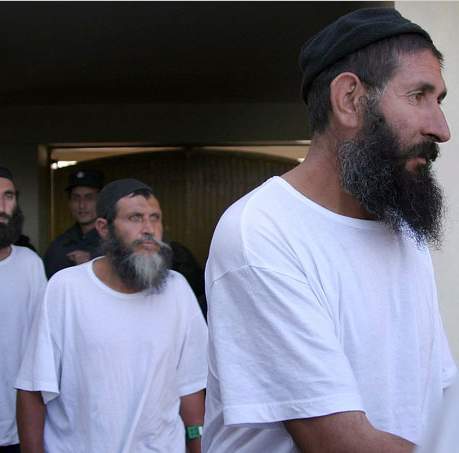
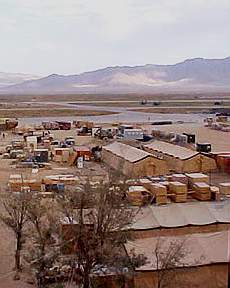
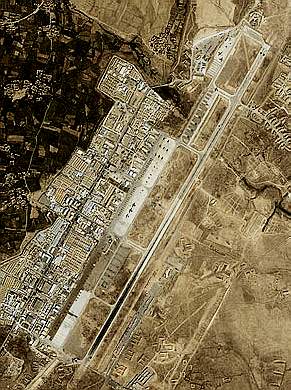
Some Prisoners at Bagram AFB, Afghanistan May Challenge Detention
Last week a federal judge ruled that some prisoners held by the US military at Bagram Air Base prison in Afghanistan have the right to challenge their imprisonment. There are more than 600 people being held at the Bagram prison in Afghanistan without charges.
The federal ruling does not apply to prisoners captured on the battlefield in Afghanistan, citizenship and location of the capture will determine if prisoners could challenge their detention in court.
Tina Foster, the executive director of the International Justice Network said that the Bagram ruling meant that changes to the Bush detention policies would go beyond merely closing Guantánamo and extend “to any place where the United States seeks to hold individuals in a legal black hole.”
Attorney Tina Foster:
- Filed writ of Habeas Corpus for the 4 detainees to challenge their detentions.
- Judge Bates: The US cannot manipulate the jurisdiction of the courts by holding people deliberately in places where the courts have not traditionally exercised jurisdiction.
- Bagram is the main military base in Afghanistan, it was an old Soviet air hangar, that’s where they’ve established a prison.
- 600 in Bagram prison.
- There are other coalition forces at Bagram AFB with military presence, but as “guests” of the US.
- US Government: Unlike Guantanamo, Bagram is in the middle of a war zone.
- Bagram was the original Guantanamo, a lot of the people at Guantanamo first spent time at Bagram.
- A few years ago, working with you Michael (Ratner) one of the happy tasks I had, was to travel all over the world, contacting the families of the detainees at Guantanamo. It also became clear that there were people locked up in other places besides Guantanamo.
- Shockingly,the Obama Administration has adopted the Bush Administration policy on Bagram. All of their legal arguments, all of their secrecy, still deciding not to disclose any information.
- What has been different than the Bush Administration, is that when Obama signed orders to close Guantanamo, he set up a task force to look at detainee policy more broadly. That report is due in July.
Guest – Tina Monshipour Foster is the founder and Executive Director of the International Justice Network (“IJN”), and serves as lead counsel in several of IJN’s legal cases on behalf detainees imprisoned without charge at Bagram Airfield in Afghanistan. Ms. Foster’s work on behalf of prisoners and other victims of human rights violations has been featured in major media outlets in the US and abroad, including The New York Times, Wall Street Journal, Washington Post, Harper’s Magazine, Smithsonian, Al Jazeera channel, and others.
From November 2004 to May 2006, Ms. Foster was an attorney with the Center for Constitutional Rights (“CCR”) and Counsel for CCR’s Guantanamo Global Justice Initiative. Prior to joining CCR, she was a litigation associate at Clifford Chance US LLP and previously served as a law clerk for Hon. Delissa A. Ridgway at the United States Court of International Trade. Ms. Foster is a graduate of Cornell Law School, where she was an editor of the Cornell International Law Journal.
——
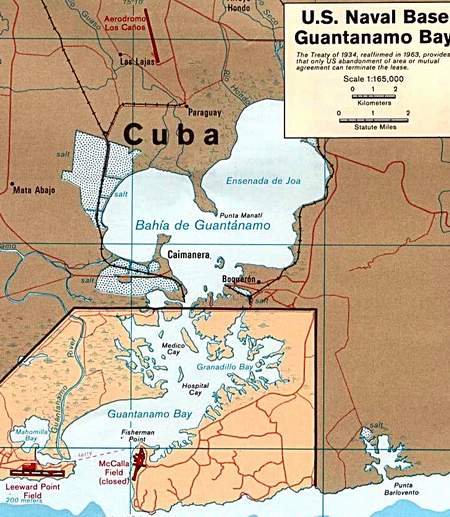
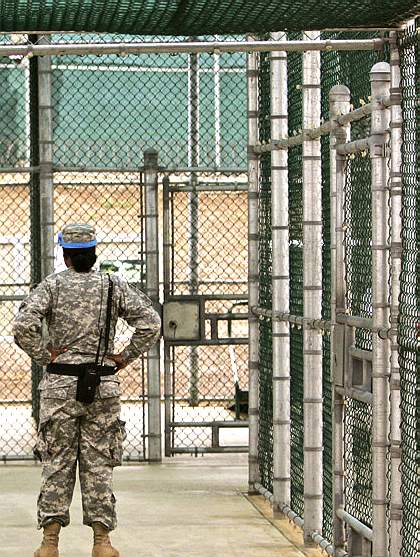
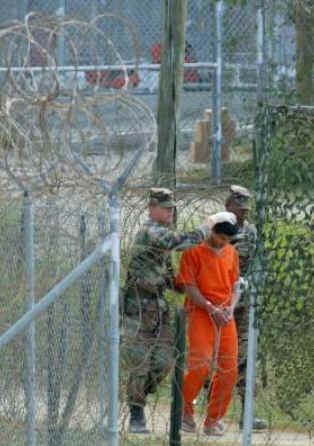
Guantanamo Bay Prison, Update
Today we talk with Emi MacLean, staff attorney for the Center for Constitutional Rights to get an update, an impression of where things stand with Guantanamo Bay prisoners, their status of Habeas Corpus, and the Obama administration’s position. There are also 17 innocent Chinese muslims called Uighurs asking, again for their release. Our guest Emi MacLean has worked with the Guantánamo Global Justice Initiative and other forms of executive detention, including secret prisons and transfers to torture.
Attorney Emi MacLean:
- More Guantanamo prisoners have left in the last weeks of the Bush Administration then the first 100 days of the Obama Administration.
- 240 people at Guantanamo right now. Approximately, 20 Guantanamo prisoners will face any prosecution.
- We’ve held more than 775 people at Guantanamo
- The people at Guantanamo right now are not there because of some greater threat assessment, they are there because of their country of nationality.
- Almost all the Europeans were released early on, almost all the Yemenis remain behind.
- A federal district judge ordered the release of the Uighers last October, the Bush Administration challenged the release.
- When we asked the Obama Administration to drop the challenge, they have yet to do so.
- I remember seeing civil liberties groups celebrating the executive order calling for the closure of Guantanamo in one year. But nothing has really changed for the reality of those men in Guantanamo. This is a consistent devaluation of the life of the men imprisoned there.
- We’ve seen the Obama Administration lawyers refuse to back away from the Bush Administration’s position on states secrets.
- It’s very hard for people to give up power.
- What makes our work difficult, is that it usually takes a couple of weeks for our communications to clear. The communication between counsels on what the Guantanamo conditions are.
- The Obama Review Team determined that the conditions at Guantanamo complied with Geneva Convention, which was certainly not what we were hearing and certainly not what we were seeing.
- The overwhelming majority of the men at Guantanamo were still in brutal conditions of solitary confinement and still reporting severe psychological and religious abuses at Guantanamo.
- No middle ground, these men should be tried or released.
Guest – Attorney Emi MacLean has worked at the Center for Constitutional Rights (CCR) with the Guantánamo Global Justice Initiative (GGJI) since June 2006. She works on issues related to Guantánamo and other forms of executive detention, including secret prisons and transfers-to-torture. She helps coordinate the pro bono attorneys representing the hundreds of men still detained at Guantánamo and supports CCR’s direct representation of a number of current detainees.
In addition, Emi is involved in civil actions brought on behalf of former prisoners released from Guantánamo (Rasul v. Rumsfeld and Celikgogus v. Rumsfeld) and actions under the Freedom Of Information Act (FOIA) challenging the government’s refusal to disclose information about the NSA’s warrantless surveillance of Guantánamo attorneys (Wilner v. NSA) and the CIA’s secret detention program (Amnesty International, CCR, et al. v. CIA). In addition to direct litigation, Emi’s work with CCR includes legislative and international advocacy.
Emi has previously worked or volunteered with the United States Senate Judiciary Committee, Center for Justice and International Law (CEJIL), Human Rights First, and the American Civil Liberties Union (ACLU). Prior to law school, Emi worked with South Africa’s National Association of Democratic Lawyers (NADEL), and Médecins Sans Frontieres (Doctors without Borders). Emi graduated magna cum laude from Harvard College and Georgetown University Law Center.
———————–
Criminalizing Dissent, Human Rights, Surveillance, Targeting Muslims, Torture
Podcast: Play in new window | Download
Update news stories:
—-
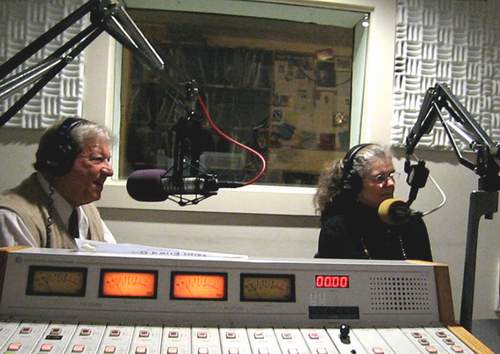
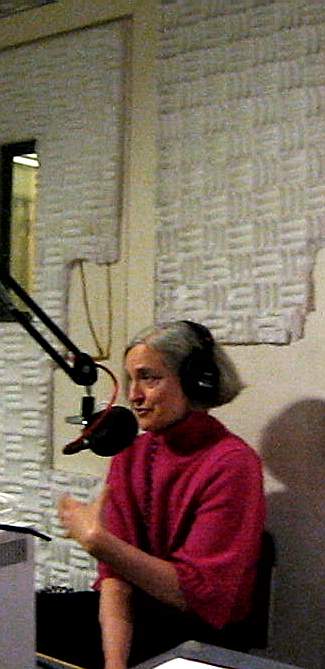
Code Pink Delegation Returns From Gaza
Recently a delegation from Code Pink and other organizations brought humanitarian and emotional support to women and women organizations in Gaza. They also pressured the US, Egyptian and Israeli governments to lift the blockade against the Palestinians. According to the United Nations Children’s Fund, the Israeli attack that began on December 27 left over 1,000 dead, including 412 children and 110 women, and more than 5,000 injured which include – – (1855 children and 795 women).
The UN also reports that hundreds of millions of dollars in humanitarian aid are needed to help Gaza’s 1.4 million people.
Helen Schiff / Felice Gelman:
- Helen Schiff: Growing up in Great Neck in the 50s, a lot of Jewish community were liberal and in support of civil rights movement. I learned about colonialism, and that Israel was created at the behest of US and British colonialism. I learned that Israel supported the French in Algeria, they supported France and British against Egypt in a war for the Suez Canal.
- So I realized the Palestinian struggle is a colonial struggle.
- Code Pink organized a delegation to Gaza and we did bring 10 thousand dollars in aid. We are drawing attention to the blockade also.
- We throw around the words siege and blockade, modern war doesn’t have sieges.
- The last siege was the battle of Leningrad, which is people blocked in to an area and attacked with all military armament.
- Gaza is about the size of Philadelphia. The current number of trucks that bring supplies into Gaza are about 100 a day. , 8700 supply trucks arrive in Philadelphia, on just one bridge in one day.
- The claim that Hamas broke the truce by firing missles is false. The truce also meant to open up borders. That hasn’t happen since Hamas were elected.
- We brought baskets for a thousand women, filled with different products that women would appreciate. We brought this on International Women’s Day.
- Psychiatrists say that the children of Gaza are exhibiting caged rat syndrome.(PDF link)
- When you are in Gaza you say to yourself, why does Israel care about Gaza, what’s the big deal?
- Two things, Gaza is an example to the West Bank and in 1999 natural gas reserves where discovered in the coastal waters of Gaza. 1.4 trillion cubic feet of natural gas. Israel has tried to negiotiate for control of the reserves since 1999.
- They have two drilling platforms north of Gaza that some believe are slant drilling into the natural gas reserves.
- The Israelis are wearing down the fighting spirit of the people in Gaza by forbidding pasta, jam, candy and any building materials. Desalinization plants have been bombed, children have kidney disease because Israelis have siphoned off the good water and there’s too much salt seeping into the wells.
- It was a targeted attempt to breakdown the infrastructure. Wanton killing of civilians and destroying infrastructure.
- Every single day we were in Gaza there was bombing or shelling. Tunnels being bombed and fishermen being shelled. Permanent tent cities.
- More delegations planned to visit Gaza to open borders. May 22 – June 14
- Palestinian Committee For Human Rights – accountability – documenting evidence.ple and billions of dollars will be required to rebuild its shattered buildings and infrastructure.
Guests – Code Pink members/activists Helen Schiff and Felice Gelman, they both had boots on the ground in Gaza and give their first hand accounts of the devastating aftermath.
—
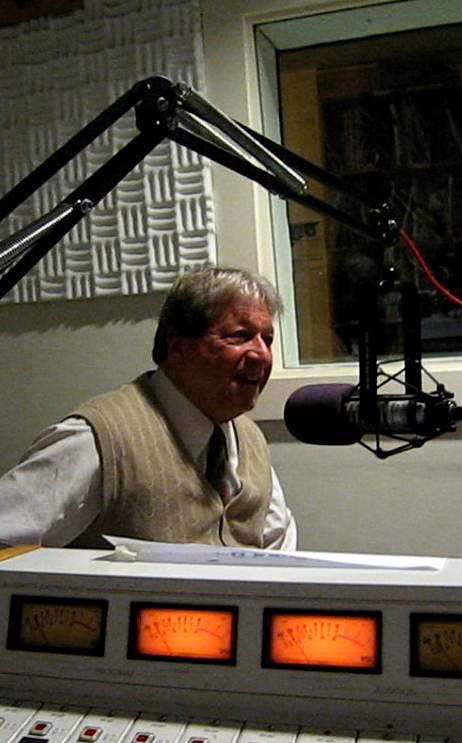
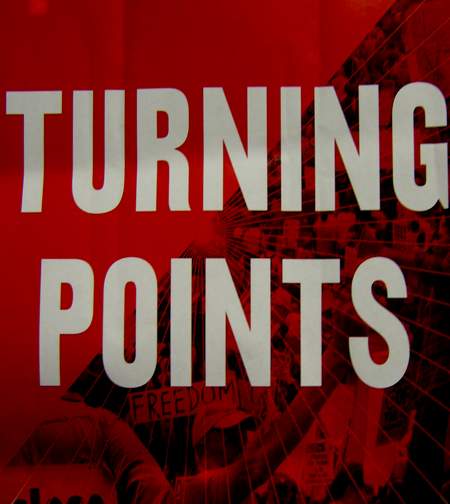
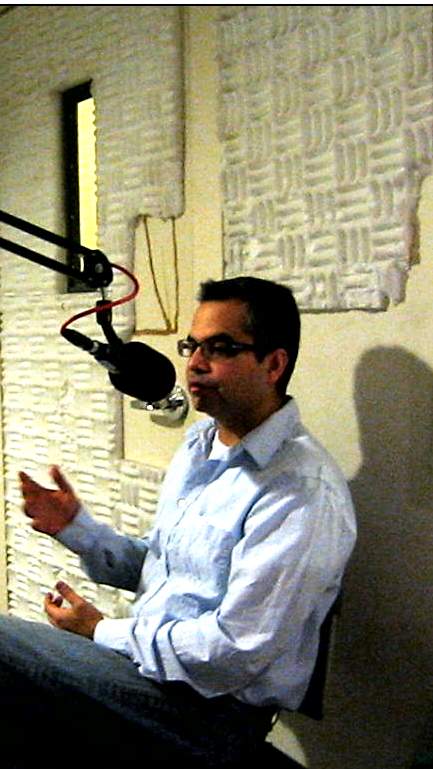
Left Forum – Vivek Chibber: American Violence: Actually Existing Barbarism?
This year’s Left Forum panels are addressing the many facets in the current global economic crisis and subsequent political conditions. Author and professor Vivek Chibber joins us today in the studio to tell us about the 2009 Left Forum at Pace University and the panel titled American Violence: Actually Existing Barbarism? The panel will explore the roots of violence, military, terrorist, criminal and casual in contemporary society that includes America’s inner cities and prisons.
Vivek Chibber:
- The Left Forum used to be known as the Socialist Scholars Conference.
- My panel on America Barbarism is from the annual volume of the Socialist Register, this years theme is around the issue of violence. The various forms violence takes under capitalism.
- I’ll be focusing on the violence of American foreign policy. Iraq in particular. The motives and interest behind Bush’s invasion of Iraq.
- Turning Points – theme for Left Forum. We’re seeing tremors in American power, which historically is the time to build progressive movements. Social welfare, pro-labor policies in favor of women, recognizing the plight of minorities.
- It’s the largest Left Forum conference ever. Everyone realizes that this is a time when we got to get some analysis of what’s going on.
- Right now, there’s a complete loss of legitimacy for the economic model of neoliberalism and a corresponding loss for all the journalists, the media gurus and intellectuals who were promoting it all this time.
- If you look carefully at Obama , his primary worry, has been not to take advantage of the opportunity of this crisis to enact any type of progressive social agenda. His main worry is to contain the pressure and not take advantage of that.
Guest – Vivek Chibber, professor of sociology at NYU and the author of Locked in Place: State_Building and Late Industrialization in India.
—————————————————























